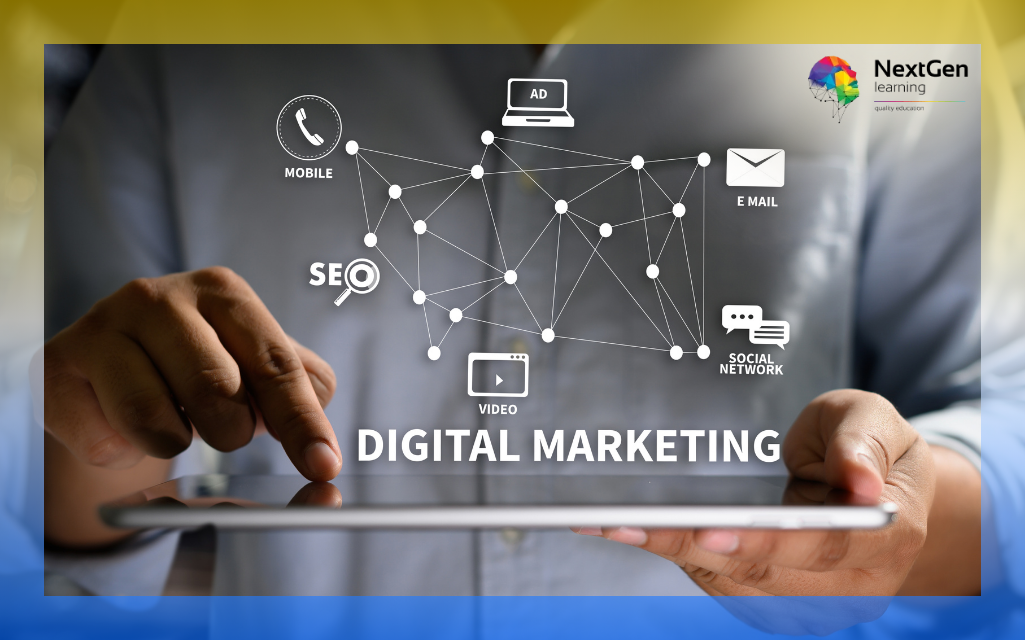If you are researching a digital marketing agency in Asia reviewing their SEO strategies in regional markets is crucial. Here’s a brief overview of the reasons each tip matters, with its advantages and disadvantages.
1. Find out about your local search engines (Baidu Naver Yahoo Japan).
SEO strategies for search engine such as Baidu, Naver and Yahoo Japan differ from Google.
Pros : Visibility on the major search engines in particular areas.
Cons: Agencies that lack the expertise to understand their area may utilize generic Google methods that are not suited to their region, which can hinder the success.
2. Make sure you are aware of language-specific keywords
What is important: analyzing regional keywords goes beyond translation. It should also take into account the local search patterns and the nuances of language.
Advantages: Localized keywords result in higher organic traffic.
Cons: Incorrectly translated or unrelated keywords may misalign with user intent and waste resources.
3. Take a look at their Localized Content Creation Approach
The reason it is important: Localized content resonates more with the public and boosts rankings, as search engines in regional regions prefer relevant content that is in-language.
Pros: Builds trust and builds organic relationships with local audience.
Cons: Unique or poorly adapted content could cause low engagement or negative perception of the brand.
4. Examine your competitors within the context of regional contexts
Why it matters: Regional competitors often have distinct strategies and strengths. Knowing the strengths and weaknesses can help you effectively position your brand.
Pros: Finds opportunities to outperform your local competitors.
Cons: Lacking knowledge of regional competitors could result in missed opportunities or a poor position.
5. Find out More about Mobile Optimization Strategies
The reason it’s important Why is it important? Many Asian markets are mobile first or mobile only and users rely heavily on smartphones to conduct their searches.
Mobile SEO is a great method to boost rankings and improve satisfaction among users.
Cons: If you don’t pay attention to mobile optimization, it can turn off a large portion of your customers.
6. Examine SEO knowledge specifically for regional markets
The regional platforms may have certain technical specifications. For example, Baidu prefers fast-loading websites hosted in China and offers sites with ICP licenses.
Pros: Proper setup of technical components boosts rankings, and makes the website more accessible.
Cons: If you don’t follow the regional technical standards for SEO, your results will be sluggish even with high-quality content.
7. Review Link-Building Strategies to Assess Regional Relevance
Why it matters What is the significance of this in Asia Link strategy for building in Asia should concentrate on high-quality and local websites (e.g. Chinese sites for Baidu or Korean ones for Naver).
Pros: Establishes authority in certain market segments in the region.
Cons: Global link-building techniques may not be relevant to local SEO performance.
8. Learn about the experiences of local directories and listings
The reason it’s so important is that many Asian search engine prioritize listings of local businesses within local directories such as Daum Maps or Baidu Maps.
Cons: Does not improve visibility for local searches.
Cons: Failure to perform this step may impact local search performance.
9. Check if they are able to track and analyze regional SEO metrics
Google Analytics metrics are not the exact same as Baidu Analytics. Proper tracking is crucial to ensure that campaigns are operating in line with expectations.
Pros: It provides useful insights that are specific to the regional platform.
Cons: Agencies without regional tools could miss vital performance data.
10. Look for Adaptability when it Comes to Regional Algorithm Updates
Why is it important Why it matters: Search engines across different regions regularly update their algorithms, affecting rankings. Agency staff must keep abreast of the modifications.
Pros: Ensures your campaigns remain competitive despite updates.
Cons: Agencies lacking an presence in the local area may have a difficult time change quickly.
Key Takeaway:
A regional SEO strategy that works in Asia must be founded on a comprehensive understanding of local search engines, cultural differences, and the technical standards. The capacity of SEO organizations to be able to change and adapt is crucial to gaining an edge in complex and diverse markets. See the top rated digital marketing agency in asia for more info including top digital marketing agency, marketing agency job, marketing team, growth marketing services, digital marketing specialist, growth marketing agency, marketing agency content, marketeering group, marketing businesses, digital marketing social media marketing and more.

Top 10 Tips For Compliance And Regulatory Expertise
When selecting a digital company when choosing a digital agency in Asia it is essential to ensure they’re in compliance with the local laws and rules. There are strict and varied laws in various countries pertaining to privacy of data, advertising, and platform specific guidelines. Here are the pros and cons of each option and the reasons they matter.
1. Make sure you are aware of the privacy laws in your locality
Why it matters: Some countries such as China, South Korea, Singapore and others have strict laws on data protection. (e.g. China’s Personal Information Protection Law PIPL as well as South Korea’s PIPA). Failure to comply could lead to severe fines.
Benefits Your brand is protected from legal risks and penalties.
Cons: Agencies who do not know the law regarding data can expose you to legal liability.
2. Verify your expertise in Advertising Standards
The reason it’s important Every country has its specific laws on advertising. For instance, the Japanese Act against Unjustified Bonuses or India’s ASCI (Association of Standards in Commercial Intelligence) guidelines. The compliance of these laws ensures the highest standards of business ethics.
Guards your website and campaigns from taking down or being suspended due to infractions.
Cons: Ignorance may cause wasteful resources or reputational harm.
3. Verify that you are aware of the E-Commerce regulations.
Why is it important: The rules governing e-commerce advertising including price transparency or claims about products, differ across regions.
Pros: Make sure that your campaigns meet the legal rules.
Cons: Failure to abide with the regulations may cause limitations on the platform or complaints from consumers.
4. Evaluation of Compliance Expertise Specificated to the Platform
What’s the point? Platforms such as WeChat, Bilibili, or Douyin have a requirement that their policies on advertising be followed.
Pros: It optimizes the performance across various platforms, and can help prevent the rejection of ads.
Cons: Ineffective campaigns and account terminations may result from lack of information.
5. Verify their familiarity with Cross-Border Marketing Rules
Why it is important When the campaign is spread across several Asian nations, your agency must be able to navigate various rules that govern international advertising.
Pros: It makes it easier to comply with various jurisdictions.
Cons: Limited knowledge of cross-border campaigns can make it difficult to increase the size of your campaign.
6. Verify compliance with Intellectual property (IP) laws
Unauthorized copyrighted use could result in legal disputes in countries that enforce strict IP laws, including South Korea and Japan.
Benefits: Your brand is protected against copyright infringement.
Cons: Not adhering to IP laws can result in damage to your brand, reputation and financial health.
7. Check to see if they’re updated on Regulatory Changes
Why it’s important: Asian markets regularly update their privacy and advertising laws (e.g. recent updates to China’s Cybersecurity law). To ensure compliance over the long term it’s essential to remain updated.
Pros: Prevents abrupt disruptions that are caused by changes in regulations.
Cons: Outdated information may result in campaigns that are not compliant with regulations.
8. Make sure you’re in compliance with Influencer marketing
What it means: The regulations for influencer marketing (e.g. disclosures regarding paid partnerships) differ across platforms and across countries.
Pros : Encourages transparency, ethics and collaboration relationships with influential people.
Cons: Failure to follow the law may cause damage to your reputation and you could be penalized.
9. Verify their knowledge of the Content Censorship Policy
The reason it’s so important Content censorship in some Asian countries is very strict and includes China and Vietnam. Avoiding bans requires that sensitive topics are handled with attention to detail.
Pros: Takedowns are avoided and a smooth flow of campaigns is assured.
Cons: A lack of awareness could result in wasted ad spend or reputational harm.
10. Seek out the evidence of a Legal Compliance team
What’s the reason: Agencies that have compliance experts or legal departments in-house are better equipped to deal with the complexities of regulations.
Benefits: It lessens the burden of your internal team to assure the compliance of your organization.
Cons: Smaller organizations may not have the expertise.
The most important takeaway:
The expertise of an agency’s the areas of compliance and regulatory frameworks safeguards your business from financial, legal, and reputational risks, while also ensuring smooth operations. You should choose agencies that have an understanding of regional laws and rules, policies specific to platforms and cross-border laws. This will help you maximize the effectiveness and safety of your campaigns. See the best social media listening services for site recommendations including digital ads agency, web marketing firm, marketing and creative agency, media & marketing, content marketing services, marketing firm, social media services, marketing agency content, digital media and digital marketing, performance marketing agency and more.
